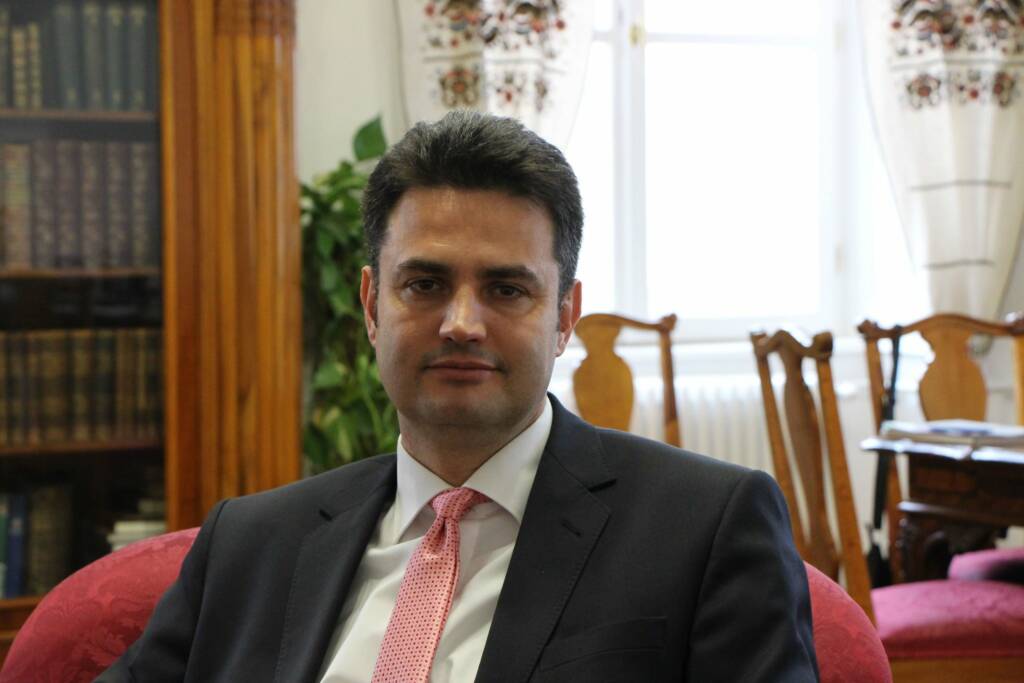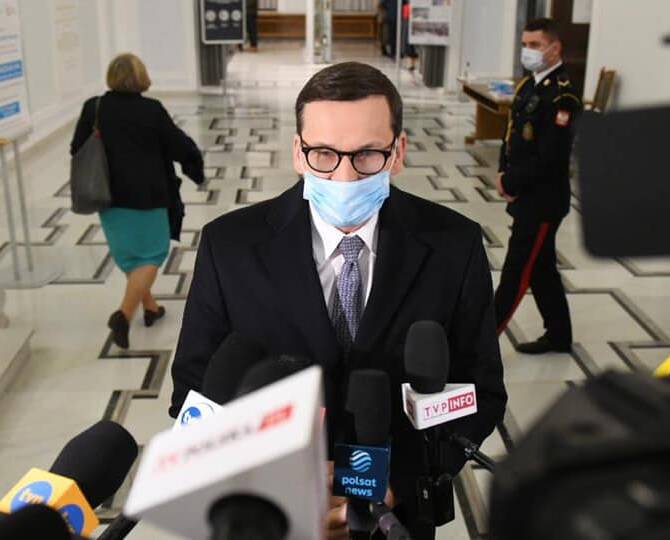Hungary – Things are heating up between the leaders of the united opposition. Former Prime Minister and President of the Democratic Coalition (DK) Ferenc Gyurcsány openly mocks the unique candidate Péter Márki-Zay, while Péter Jakab’s Jobbik no longer provides financial support to the campaign. Meanwhile, Fidesz is keeping scores, exploiting the clumsiness of Péter Márki-Zay and muddying the waters by relentlessly hitting Budapest mayor, Gergely Karácsony. What is happening within the Hungarian opposition?
Péter Márki-Zay, not such great casting idea?
On the evening of the mayor of Hódmezővásárhel’s surprise victory in the united opposition primaries on 17 October, 2021, observers agreed that this single candidate was going to give Viktor Orbán’s Fidesz a hard time. Indeed, Péter Márki-Zay has an almost perfect political virginity going for him, the image of someone disappointed with Fidesz and an opponent within the opposition, conservative aspects, a presence in the provinces obtained thanks to the first success of the “all against Fidesz” strategy as well as international experience in the private sector allowing him to compensate for little political experience. On paper, this candidate was therefore thought to combine qualities that could bring together opposition voters and capture Fidesz voters. This seductive reasoning nevertheless disregards two electoral strategy constants, which hold true in Hungary.
Victory in a primary (or a party congress) is capitalised over time if it is obtained by winning the most left positions in the case of a left-wing primary or the most right positions if it is a right-wing primary. This rule – which, like all rules, can suffer from exception – was not respected in the Hungarian case, Péter Márki-Zay having won the primary by occasionally bordering on Fidesz themes.
This “victory by the right” is all the more flawed in that it does not rely on any political apparatus directly piloted by the candidate. Péter Márki-Zay has neither troops, nor party.
Moreover, he has just given up on the creation of a seventh group of which he would have been the leader during the next legislature, thus showing his ineptitude to impose a few entirely devoted men on the six parties of the united opposition. The six parties have still not managed to agree on a common list, nor has their presentation of a common program taken place.
In addition to these technical and objective weaknesses, the united opposition candidate is regularly noted for his style of communication and public speeches arousing discomfort in his own allies, as well as annoyed reactions from the Hungarian anti-Orbán press. On several occasions, Péter Márki-Zay gave the impression of being out of control and speaking out in a thoughtless way by clumsily attacking voters of the government majority. This series of polemical declarations culminated when the candidate pronounced risky words on the Jewishness of certain members of Fidesz, or when he explained that the Fidesz electorate had been decimated by Covid and that the provincial supports of the government were not fit to complete a page of crossword puzzles. This amateurism, which even some observers close to the opposition did not fail to point out, caused a reshuffle within the candidate’s communications team in mid-January with a more important role given to András Simon and the appearance of Judit Péterfi, both former journalists of the ATV channel and political communication professionals. This “rectification” of the candidate seems to have led him to give up his solitary practice of live streams on social networks, a very dangerous activity during an electoral campaign.

DK and Jobbik: the game masters within the opposition
As a reminder, Hungary has 106 single-member electoral constituencies, electing 106 of the 199 deputies of the National Assembly, the 93 others being elected via a proportional list system with a bar at 5%. The Prime Minister is elected by the Assembly. The Democratic Coalition (DK) of former Prime Minister Ferenc Gyurcsány and Jobbik of Péter Jakab are the parties that obtained the most constituency candidates and are the only ones to benefit from a partisan apparatus and electoral hard cores.
Skillfully, these two parties yield nothing to Péter Márki-Zay, secure in the knowledge that without their support the candidate does not weigh much and will be unable to govern the day after a hypothetical victory. Some opposition protagonists, such as the former director of the Central Bank Péter Ákos Bod, did not hesitate to point out that nothing would legally bind the new Parliament into electing or not Péter Márki-Zay to the post of government leader. It is indeed perfectly possible that the opposition will win the elections on 3 April but that the current candidate will never be Prime Minister.
However, it could be that the two strong opposition parties are no longer following this scenario and are already betting on the defeat of the opposition.
The DK provides minimum support in the opposition campaign and Ferenc Gyurcsány, when he is not directly deriding the candidate, is very timid in his support. Jobbik elected not to participate financially in the campaign, preferring not to take any risks and instead focusing on the constituencies it is able to win.
No place will probably be granted on the joint list to Péter Márki-Zay’s entourage, which corroborates the hypothesis according to which members of the Hungarian opposition are indeed envisioning a defeat and are placing their pawns for post-3 April 2022. Indeed current negotiations for the formation of a list also focus 45 seats, that is to say the number of deputies that the opposition is more or less sure of obtaining on the list ballot. According to the ATV channel, the balance of power in terms of the number of candidates on this list of 45 names are as follows: DK: 13-16; Jobbik: 9-12; Momentum: 7-8; MSZP: 6-7; LMP: 3-4; Parbeszed: 2-3. It looks like Péter Márki-Zay’s wish to see three candidates of Gypsy origin appearing on this list of 45 people has not been accepted by the six parties of the coalition, and the last negotiations to date have probably taken place on 15 and 16 January without the presence of the candidate.
Against Péter Márki-Zay, Fidesz first chose to focus attention on the unsuccessful candidate for the primary, the mayor of Budapest Gergely Karácsony. Without achieving concrete results in terms of legal evidence, governmental forces succeeded in minimizing Péter Márki-Zay’s media space for long weeks (approximately until Christmas) by using the case of the Budapest city hall and the media onslaught that followed regarding the person of Gergely Karácsony — a tactic that could be called the “Houdini method”. This led the men in charge of the Fidesz campaign to realise that it was not necessarily useful to attempt a blackout of Péter Márki-Zay, quite the contrary. The opposition candidate’s clumsiness has been a godsend for Fidesz, while his submission to the partisan forces of the opposition is more and more evident every day, which confirms the government’s argument that Péter Márki-Zay is “the hostage of the left”.
On paper and from the point of view of electoral dynamics, the chances of victory for the opposition on 3 April are reduced. Only the international agenda, particularly the “health situation”, is capable of blocking the way to a fourth victory for the Fidesz-KDNP coalition.




